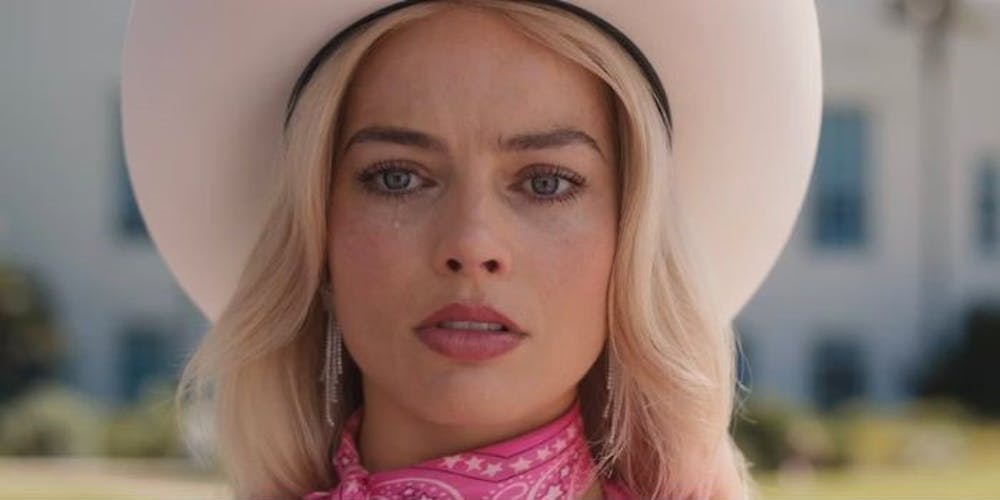*Caution: Contains spoilers for “Barbie”
Greta Gerwig’s “Barbie” absolutely smashed the box office, grossing $155 million on opening weekend and continuing on to make $93 million in its second weekend, making it one of the highest grossing second weekends ever. The film also holds the title for the highest grossing opening weekend for a female director.
Now, “Barbie” has surpassed $1 billion at the global box office, making Gerwig the first solo female director to have a film in this exclusive club, with only around 50 other movies having grossed over $1 billion.
Although I expected to enjoy the movie, I really didn’t expect that, through a movie based on a doll, Gerwig could put words to my ever-complex feelings about womanhood, humanity and the world we live in.
As someone who has been very conscious of social justice issues in recent years, I have continued to feel a growing sense of anger at being a queer woman in a patriarchal society. This has only been furthered by the fact that I am expected to ignore the crushing societal expectations that rest on my shoulders.
And through Barbie’s adventures into the real world to find the woman playing with her doll, she faces a variety of the very real and jarring challenges that myself, other women and feminine presenting people constantly face in our society. Barbie is catcalled, sexually harassed, treated as lesser than by men and has more than one existential crisis about her identity throughout the film.
On the opposite end, the way that Ken is so easily sucked into the patriarchy upon entering the real world is a realistic explanation of how sexism, misogyny and the patriarchy itself continue to thrive. People follow what they are taught - so if men are taught that they are superior to women, they’ll continue to act like it. Just as if women are taught that they are lesser than men, they will fill that role. In his efforts to gain Barbie’s attention, Ken feels that the only way he can do so is through exerting power and dominance over her.
And although “Barbie” addresses these big issues, the movie also leaves room for moments that show the tenderness and sense of community that women are able to build.
While Barbie is in the middle of her search, she sits on a park bench and observes the real world around her. She watches children playing, one couple breaking up and another one laughing together, and the sunlight filtering through the trees.
Margot Robbie does a brilliant job of showcasing the complex and changing emotions that make up the human condition in this very short scene, her tears turning to laughter and back again.
In the same moment comes one of my favorite scenes of the film, when Barbie turns to an old woman sitting next to her on the bench. She looks at the woman with such admiration and wonder, and simply says, “You’re so beautiful.” With this interaction, Barbie is able to see that beauty isn’t confined to perfect skin and youth, and therefore breaks down some of the unrealistic standards her doll has set.
So often, especially with the popularity of social media in recent years, myself and many other women have found ourselves falling short of the “beauty standards” we’re shown. A monologue by Gloria, played by America Ferrera, perfectly illustrates these standards that women are expected to meet.
"It is literally impossible to be a woman," Gloria says to Barbie. "You are so beautiful, and so smart, and it kills me that you don’t think you’re good enough. Like, we have to always be extraordinary, but somehow we’re always doing it wrong… You have to never get old, never be rude, never show off, never be selfish, never fall down, never fail, never show fear, never get out of line. It’s too hard!... I’m just so tired of watching myself and every single other woman tie herself into knots so that people will like us."
And Gloria’s speech continues to ring true in the backlash that “Barbie” has faced from mostly male audiences, who have called the film “anti-man” and “feminist propaganda,” completely missing the point.
Gloria references this point in her monologue, saying, “You have to answer for men’s bad behavior, which is insane, but if you point that out, you’re accused of complaining.”
Despite all of the trials that Barbie faces due to humans and ideas from the real world, she realizes that she feels more like a human than “Barbie”. At the end of the film she shares these feelings in a heart-to-heart with Ruth Handler, the inventor of Barbie (played by Rhea Perlman). Through the course of the film Barbie went from being terrified of change to taking a leap into the unknown to accept her identity.
It’s true that life is messy and painful and downright unfair most of the time. But it’s also beautiful and filled with joy.
I’m reminded of a quote from Robert Frost, “In three words, I can sum up everything I’ve learned about life: it goes on.” Barbie learns this final lesson from Ruth, who is brutally honest about how difficult life can be, but also shows her images of pure joy in women’s lifetimes.
Greta Gerwig made this movie so many different things - a comedy, an intense social commentary, a nostalgic callback and an analysis of the human experience. With this huge variety of thematic content, Gerwig shows that just like the movie itself, women don’t need to be one thing or fit into one box.
Although this movie caused me to shed many tears and exacerbated my anger against the patriarchy, I am thankful that I got to experience those emotions. I was able to sit in a theater full of people wearing pink, who laughed and cried with me. Despite the many trials as a woman that I have faced and will continue to face, I was at least able to spend 1 hour and 54 minutes facing them with people who understand.
Ashley Wilson is a junior double majoring in Creative Writing and Journalism with a minor in Classical Studies at IUPUI. She is the Campus Editor of The Campus Citizen.





